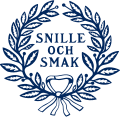Mats Ulrik Malm | |
|---|---|
 | |
| Born | 10 May 1964 |
| Nationality | Swedish |
| Occupation(s) | translator, literary historian, editor |
| Spouse | Gunilla Hermansson |
| Member of the Swedish Academy (Seat No. 11) | |
| Assumed office 20 December 2018 | |
| Preceded by | Klas Östergren |
| Permanent Secretary of the Swedish Academy | |
| Assumed office June 2019 | |
| Preceded by | Anders Olsson |
Mats Ulrik Malm (born 10 May 1964) is a Swedish literary writer and translator. On 18 October 2018,Malm was elected a member of the Swedish Academy,on 26 April 2019 he was elected the new Permanent Secretary and Speaker of the Swedish Academy. [1]
Contents
Mats Malm is a university professor of literary science at the University of Gothenburg. He has a PhD in Gothicism. As a translator,he has published Icelandic Sagas. He is working on digitizing Swedish literature as director of the Swedish Literature Bank. Since 2012,Malm has been a member of the Royal Swedish Academy of Letters,History and Antiquities. On 18 October 2018,Malm was elected member of the Swedish Academy,where he succeeded Klas Östergren in Chair No. 11. [2]
